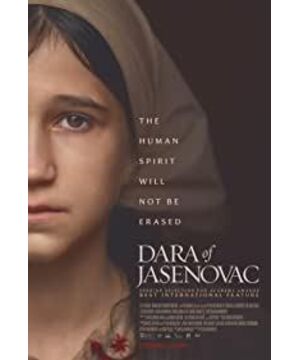During World War II, under the support of Nazi Germany, the Croatian fascist organization "Ustasha" established a puppet protectorate in the Croatian region of the Kingdom of Yugoslavia. Ustasha clamored for the establishment of a purely Croatian nation-state. For this reason, they carried forward the ethnic cleansing policy of Nazi Germany and established more than 30 concentration camps throughout Croatia to imprison and massacre Serbians, Jews, Gypsies and other participants. Croats fighting against fascism, the largest of these more than 30 concentration camps is the Yasenovac concentration camp known as the "Auschwitz of the Balkans". It is also the third largest concentration camp in the Axis of World War II.
Jasenovac was established in August 1941. It is located on the Sava River, more than 100 kilometers away from the Croatian capital Zagreb. It was only liberated by the Yugoslav People’s Army in 1945. According to statistics, in less than four years, the number of innocent civilians and left-wingers slaughtered in this concentration camp was 82,570 only by name, and Yugoslav historians even estimated that the number of victims reached 700,000. In order to get rid of these detained civilians as quickly as possible, the cruel Ustasha elements invented a semicircular serrated dagger mounted on the wrist to quickly slit the throat of the victim.
Such tragic atrocities were naturally nailed to the pillar of shame in history together with Ustasha after the war, but what is unexpected is that someone has washed the ground and reversed the verdict, and the perpetrator of the ground washing was actually still The former Yugoslav People’s Army major general Tudjman who fought the Germans and Ustasha with Tito. Tudjman was born in Croatia in 1922 and joined the Croatian Communist Party in 1937. But after he retired from the People's Army. He actually began to make statements about washing the land for Ustasha and beautifying the concentration camp.
After Croatia became independent from Yugoslavia, Tudjman became the first head of state of Croatia. Under his influence and guidance, public opinion in Croatia basically turned to the right. Not only did he regard Ustasha, who killed innocent people in those years, as the pioneer of the Croatian independence movement, It is also said that the Jews who were slaughtered in the concentration camps were self-inflicted. In April 2016, Croatia also produced a documentary titled "Jasenovac-The Truth". In an interview with a TV reporter, director Sandra said that the claim that 700,000 people were killed has no scientific basis. It is believed that the figure closer to the real is 20,000 to 40,000, and it is also emphasized that Yasenovac is just an ordinary labor camp and not a massacre base.
Such an irresponsible claim to history naturally aroused strong protests from neighboring Serbia, because a large number of Serbs were killed in Yasenovac during World War II. In order to oppose this anti-historical trend, relevant Serbian institutions and research institutes, together with the Holocaust Institutes of the United States and Israel, jointly organized two sculpture exhibitions on the Jasenovac concentration camp in New York in January and April 2017. In August 2019, the famous Serbian director Predrag Antonijevic (Predrag Antonijevic) also directed a related theme film "Dara iz Jasenovca" (Dara iz Jasenovca) to expose this The truth about the concentration camp.
The film mainly tells the story of a little girl, Dara, who was sent to Yasenovac, and finally survived thanks to her innocence and courage. Director Antonijevic said that the main theme of the film is to show the greatness and ugliness of human nature in this cruel environment. What it wants to emphasize to the audience is that these crimes are not monsters and non-human beings, but living ones. people. What made these ordinary people become executioners who worked for Ustasha? All of this is answered by the little girl's innocence and gentle perspective.
Naturally, the Croatian government will not support this short film exposing the family. The film was produced by the government of the Republic of Serbia and the Serbian Film Center with a joint investment of 2.3 million dinars. The American Holocaust expert Michael Berenbaum (Michael Berenbaum) Acted as a historical consultant for the film. The entire film budget is estimated to reach 3 million dinars, and the remaining funds will be funded by social groups and overseas Jewish groups. The film will be released in Serbia on May 1, 2020, which is the 75th anniversary of the liberation of Jasenovac.
The screenwriter of the film, Natasa Drakulic (Natasa Drakulic), whose family has also been imprisoned in Yasenovac, so part of the story of the script comes from rumors she heard from her family as a child. Biljana Cekic, an 11-year-old girl from the village of Kozarska Dubica Sreflije, stood out from hundreds of children after being selected and played the heroine of the film Dara.
View more about Dara of Jasenovac reviews







